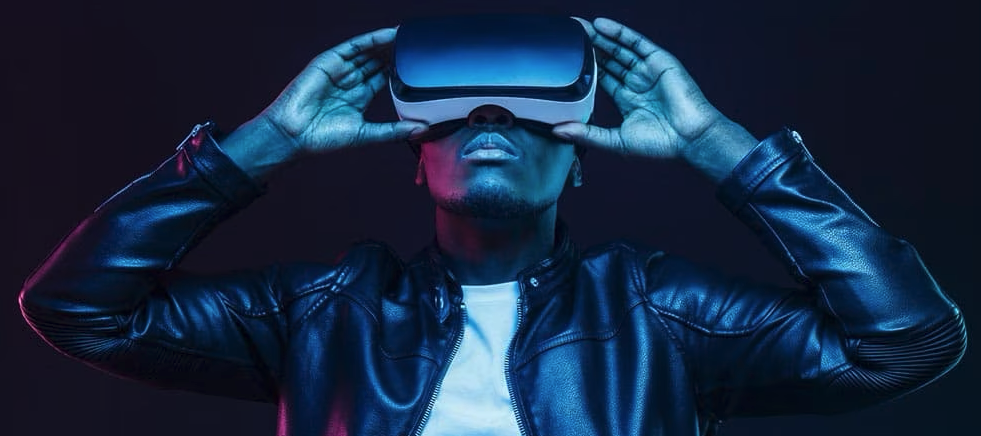WHY THE METAVERSE SLOW DOWN?
On the 28th October 2021, it was announced that the Facebook group would be changing its name to META. The reason for this was to unite its brands - Facebook, Instagram & WhatsApp, with a forward thinking and progressive term - and to allow them to take ‘ownership’ of the burgeoning world of the metaverse.
The metaverse, a digital universe that blends augmented reality, virtual reality, and the internet, has captured the imagination of technologists and futurists alike. With its potential to revolutionise how we interact, work, and socialise, the metaverse has been hailed as the next evolutionary step in the digital landscape. However, despite the heightened expectations, the metaverse is currently facing a series of challenges that are impeding its rapid growth and widespread adoption. Lets take a look at the primary reasons behind the metaverse's struggles and what the potential solutions might be.
Infrastructure and Accessibility:
One of the primary obstacles the metaverse faces is the requirement for robust infrastructure and widespread accessibility. To realise the full potential of the metaverse, users need access to high-speed internet, powerful computing devices, and advanced hardware. Unfortunately, this level of technological readiness is still not universally available, especially in developing regions and rural areas. Bridging the digital divide and ensuring equitable access to the metaverse will be crucial in unlocking its transformative possibilities for a broader audience.
Content Creation and Quality:
A thriving metaverse requires an abundance of compelling and diverse content that can keep users engaged and interested. However, content creation in virtual spaces is a unique undertaking that demands substantial resources, expertise, and time. Designing immersive and intuitive experiences is an intricate process that not all developers can easily accomplish. As a result, the metaverse is currently grappling with a shortage of high-quality content, which may deter users from spending significant amounts of time within these virtual worlds.
Privacy and Security Concerns:
As the metaverse evolves, it integrates an ever-expanding part of our digital lives, including our personal data and identities. This integration raises legitimate concerns about privacy and security. Users worry about potential data breaches, unauthorised access to their virtual identities, and surveillance within these digital spaces. To gain widespread trust and acceptance, the metaverse must prioritise robust security measures and transparent data policies, ensuring that users' personal information remains protected.
Economic Models and Monetization:
While the metaverse offers new possibilities for business and commerce, finding sustainable economic models and fair monetisation strategies is still an ongoing challenge. Content creators and developers need viable ways to monetise their creations, and users should have access to transparent and equitable payment mechanisms. Striking the right balance between monetisation and user experience is crucial to avoid potential backlash and ensure the metaverse's long-term success.
PSYCHOLOGICAL CONCERNS
The metaverse, with its immersive virtual environments, brings forth a host of psychological issues. Foremost among them is the potential for addiction (or at least fatigue brought on by overuse), users may become consumed by these enticing digital worlds, neglecting their real-life relationships and responsibilities. The boundary between the virtual and physical realms becomes increasingly blurred, leading to identity dilemmas and existential questions as individuals grapple with distinguishing their online avatars from their authentic selves - worrying stuff!
The constant exposure to idealised representations of others in these virtual spaces can contribute to feelings of inadequacy and low self-esteem, intensifying the already prevalent problem of social comparison in the age of social media.
Addressing these psychological challenges is imperative, necessitating responsible development and stringent regulation to ensure that the metaverse's transformative potential does not come at the expense of individuals' mental well-being.
Fundamentally, will the ‘human condition’ simply not allow itself to be drawn into such an expansive virtual world, with the intensity that is needed for the metaverse to rival the power of the internet and connected devices? Will it find its place in the digital eco-system as purely an entertainment and discovery space?
METAVERSE ADOPTION:
The metaverse's struggles are not a barrier to its success, but they require concerted efforts from tech companies, policymakers, and content creators to address them collectively. These challenges can be reduced, and this will help define the full potential of the metaverse. The metaverse can become a transformative and inclusive digital frontier that revolutionises how we interact, learn, and create in the years to come.
As with all new technology, the consumer will choose how successful it will become based on how important/useful it is in living their life.
This article was written for inclusion in a clients white paper on the topic of Digital Futures and was written in May 2023.



